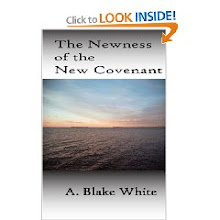
I have been asked about my thoughts on the Manhattan Declaration (click to read it). I have spent the time to read the document itself. However, understanding that I am inadequate to form an opinion of the document from one cursory reading, I opted to do a little more research. Thus. I have also read various reflections on the content and purpose of the document itself by people way smarter than myself whose opinions were welcomed from the beginning. Some such as John MacArthur and Allistair Begg agree with what is being defended in the document, but refused to sign it due to the fact that the document appears to be similar to ECT (Evangelicals and Catholics Together) and other such documents. These particular leaders of the Christian church see the document as a Gospel compromise because those who believe the Biblical Gospel are "partnering" with with those who obviously do not believe the Biblical Gospel (i.e. Roman Catholics). In other words, a broad range of men and women from various denominations have attached their names to this document and respected leaders such as MacArthur and Begg view this as too ecumenical.
Others such as Al Mohler adamantly defended their signing of the document suggesting that penning his signature in no way compromised the Gospel in his own conscience. Mohler, as usual argues very convincingly about the primary purpose and importance of such a document.
For those wondering- my opinion was never welcomed, nor did I (or do I- believe me) expect it to be. It ultimately does not matter what I think. The document was drafted with the purpose of garnering influential Christian leaders to align themselves with the goals communicated in the document in order to send a clear message. For the record, I do not think the world is loosing sleep because Andy Smith has, or has not signed the document. As I stated, in the overall scheme of things my opinion amounts to, well.....nothing. On the other hand, some in our church have kept up with the controversy surrounding the drafting of this document and have asked if I have heard about it and what I think of it. Therefore, I want to offer just a few thoughts on the matter. Take these for what they are worth. Ultimately, I believe one's own conscience must dictate whether they approve or disapprove of the document.
1. The overall purpose of the document must be kept in proper perspective. The purpose of the document is stated early on, "We act together in obedience to the one true God, the triune God of holiness and love, who has laid total claim on our lives and by that claim calls us with believers in all ages and all nations to seek and defend the good of all who bear His image."
Now the three areas the document outlines to "defend the good of all who bear His image" are: 1) "the profound , inherent, and equal dignity of every human being as a creature fashioned in the very image of God, possessing inherent rights of equal dignity and life", 2) "marriage as a conjugal union of man and woman, ordained by God from the creation, and historically understood by believers and non-believers alike, to be the most basic institution in society", and 3) "religious liberty, which is grounded in the character of God, the example of Christ, and the inherent freedom and dignity of human beings created in the divine image".
To me, these appear to be very worthy ideals to defend as Christians. All three flow from the concept of all men and women being created in the image of God. We have talked about this in before so I will not wax here. But take marriage for instance, God created us to reflect the Trinity (Father, Son, and Holy Spirit loving one another sacrificially). And one of the primary ways this is done is in marriage. Marriage (instituted at creation) allows us to behold and reflect the triune God that we worship. Marriage, as established at creation, was not meant to be a union between "Adam and Steve", but "Adam and Eve" (I know that is an over used cliche but it is true!). God's rules for marriage have not changed since creation. Marriage is only marriage (Biblically speaking) when it is between a man and woman. Thus, marriage between male and female was established at creation and reigns as a universal rule whether one is Christian or not. Therefore, Christians do well to defend this because it is a creation principle that has never changed. Society itself is built upon that universal, creational law. (Note: I am not saying that it is a law to be married. I am simply saying that if one chooses to get married they must do it the way that God designed marriage from the beginning- between a man and woman).
Second, the document points out (rightly so) that the promotion of same-sex marriage whether in attitude or practice is only a symptom of the greater problem. And the greater problem lies with the failure of professing Christians to take marriage seriously, and to understand it in its God given purposes. The document says, "We confess with sadness that Christians and our institutions have too often scandalously failed to uphold the institution of marriage and to model for the world the true meaning of marriage." The document then affirms that the current capitulation to the culture's current view of marriage by Christians would only "lock into place the false and destructive belief that marriage is all about romance and other adult satisfactions, and not, in any intrinsic way, about procreation and the unique character and value of acts and relationships whose meaning is shaped by their aptness for the generation, promotion, and protection of life. In spousal communion and the rearing of children (who, as gifts of God, are the fruit of their parents maritial love) , we discover the profound reasons for and benefits of the marriage covenant."
There is a proper attitude for Christians to bear regarding marriage. Christians should start taking marriage more seriously than we have in more recent times. We ought to view marriage as less about sexual and emotional pleasure and more about the unique ability that marriage offers in the arena of creating another life made in the image of God! We ought to rejoice in this privilege; not begrudge it, or view children as an inconvenience. The feminist movement has not helped out here; and neither has the "safe sex" movement.
In many ways, the document is brilliant because it compellingly ties together the issues of homosexuality, marriage, abortion, euthanasia, and religious liberty as one big, complex issue. And the complexity is removed when one realizes that the central issue is really submission to our Creator. Christians do not serve Ceaser. As the document itself pointed out, "We will fully and ungrudingly render to Ceasar's what is Ceasar's. But under no circumstances will we render to Ceaser's what is God's." Christians serve God through Jesus Christ our Redeemer!
In an increasingly sissified culture, it is nice to see professing Christians take such a courageous and bold stance.
2. As Mohler has documented on countless occasions, Canada and some European countries have been a theatre for recent cases where Christian clergy have been prosecuted for preaching against homosexuality with the Bible as their authority for doing so. Thus, this document could help make the church function more smoothly if it achieves its intended goal. The document affirms the church's discretion as to who is qualified to pastor, what to preach, and what beliefs to propagate whether from the pulpit, through literature, or the Internet. For me, this becomes a personal issue. I DON'T want anyone dictating to me what to preach. If I found myself in circumstances where that was happening on a legal level I pray that I would do the Christ honoring thing (that would be preaching the Gospel regardless of the cost for myself or family for those wondering what the Christ honoring thing would be)!
3. So far my comments have supported the document and its purpose. However, I do have one axe to grind with the Declaration. I do not know if it would be enough for me to not sign the document or not. I have not decided. My grievance is with the wording of the document. From the beginning, the document assumes that Roman Catholics affirm the Biblical Gospel.
This is the point that MacArthur and Begg make in their articles, and which serves as the primary reason that neither one of them signed the document. Read these words from MacArthur (the modern day Prince of Preachers), "...it assumes from the beginning that all signatories are fellow Christians whose only differences have to do with the fact that they represent distinct communities. Points of disagreement are tacitly acknowledged but are described as 'historic lines of ecclesial differences' rather than fundamental conflicts of doctrine and conviction with regard to the gospel and the question of which teachings are essential to authentic Christianity. Instead of acknowledging the true depth of our differences, the implicit assumption (from the start of the document until its final paragraph) is that Roman Catholics, Eastern Orthodox, Protestant Evangelicals and others all share a common faith in and a common commitment to the gospel's essential claims. The document repeatedly employs expressions like 'we [and] our fellow believers', 'As Christians , we...', and 'we claim the heritage of....Christians'. That seriously muddles the lines of demarcation between authentic Biblical Christianity and various apostate traditions".
I understand what MacArthur is saying and actually agree with him. I would point out, however that there is a sense in which Roman Catholics and Eastern Orthodox people (at least the ones who signed the document) could be genuine Christians. I would not hesitate to say that it is possible for a Catholic to be a Christian. In fact, I have known a few myself. That does not mean Catholic doctrine holds to the true Gospel. If you do not believe me, then follow Allistar Begg's advice (who also refused to sign the document) and read Calvin's Institutes on the Roman Catholic Mass (Book IV, Chapter 18)!
Furthermore, even if some of the signatories prove to not be true believers, it does not stand to reason that all of them must of necessity be either Catholic or Eastern Orthodox. Would it not be possible that some of the Protestants that signed the document could prove in the final analysis to not be Christian as well? I am not trying to split hairs. Nor am I trying to judge the heart of any man that signed the document. Nevertheless, one must concede that there are Protestants who could articulate the Gospel in and out; yet still be lost. On the other hand, there could be Roman Catholics who know the Gospel, but remain in the Catholic church for inferior reasons of which they are even aware. I would just provide one caveat- I think the former is more prominent than the latter option; however, that is just my opinion.
The point is that even those who signed the document and hold wholeheartedly to a form of the heretical version of the gospel as espoused by the Roman Catholic church still affirm belief in the God of the Bible.
We have spoken a lot about this in our current Sunday School series. One can believe in God and not be a Christian in the "Gospel sense", right? James tells us that the demons know there is a God, but they are not Christians in the "Gospel sense". So the document is affirming basic truths about a Creator God. The basic truth is that all men are created in His image. The document is not trying to bring Catholics and Protestants together on the doctrinal details of the Gospel. Rather, the agenda of the document (to me at least) seems to be an effort to promote the basic freedom and rights of not just Christians, but non-Christians who have all been created in the triune image of God- our Maker.
So I think that MacArthur and Begg have a valid point. The language of the document does (to me) assume that Roman Catholics are Christians in the same sense as Protestants. I disagree with that and wholeheartedly affirm that Roman Catholic doctrine is heretical and damnable. Thus, I think the language of the document is unfortunate. Nevertheless, the document does promote a worthy cause that even non-Christians could benefit from because the overall thrust of the document (it seems to me) is to send a message that supports and promotes universal laws that God established at creation such as the sanctity of human life (on both ends- whether embryo fashion or nursing home fashion) and Biblical marriage.
Conclusion
As I said, nobody is waiting to see whether I will sign the document or not. These are just my current musings on the Declaration. Take them for what they are worth. May your conscience by your guide!
AMS








No comments:
Post a Comment